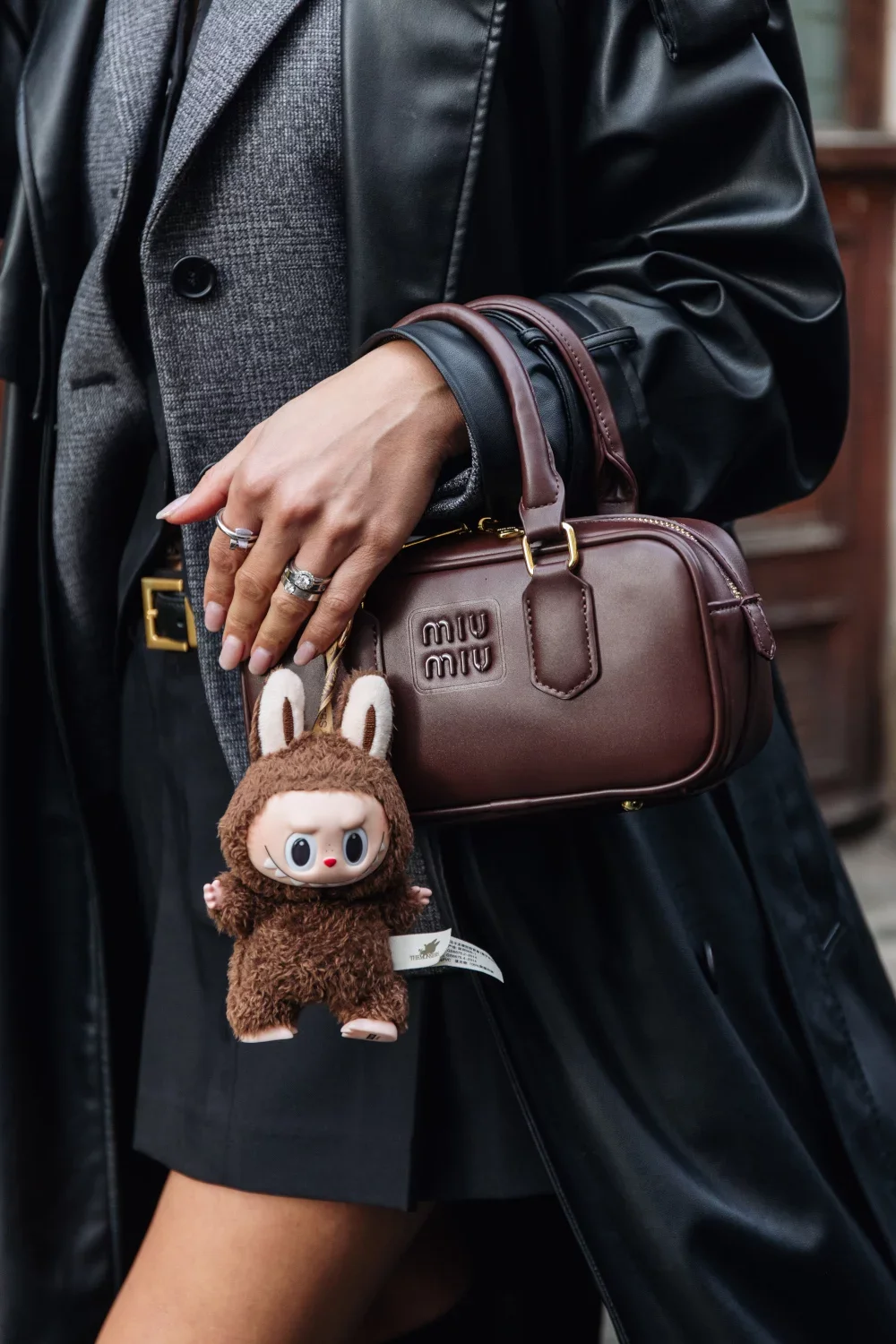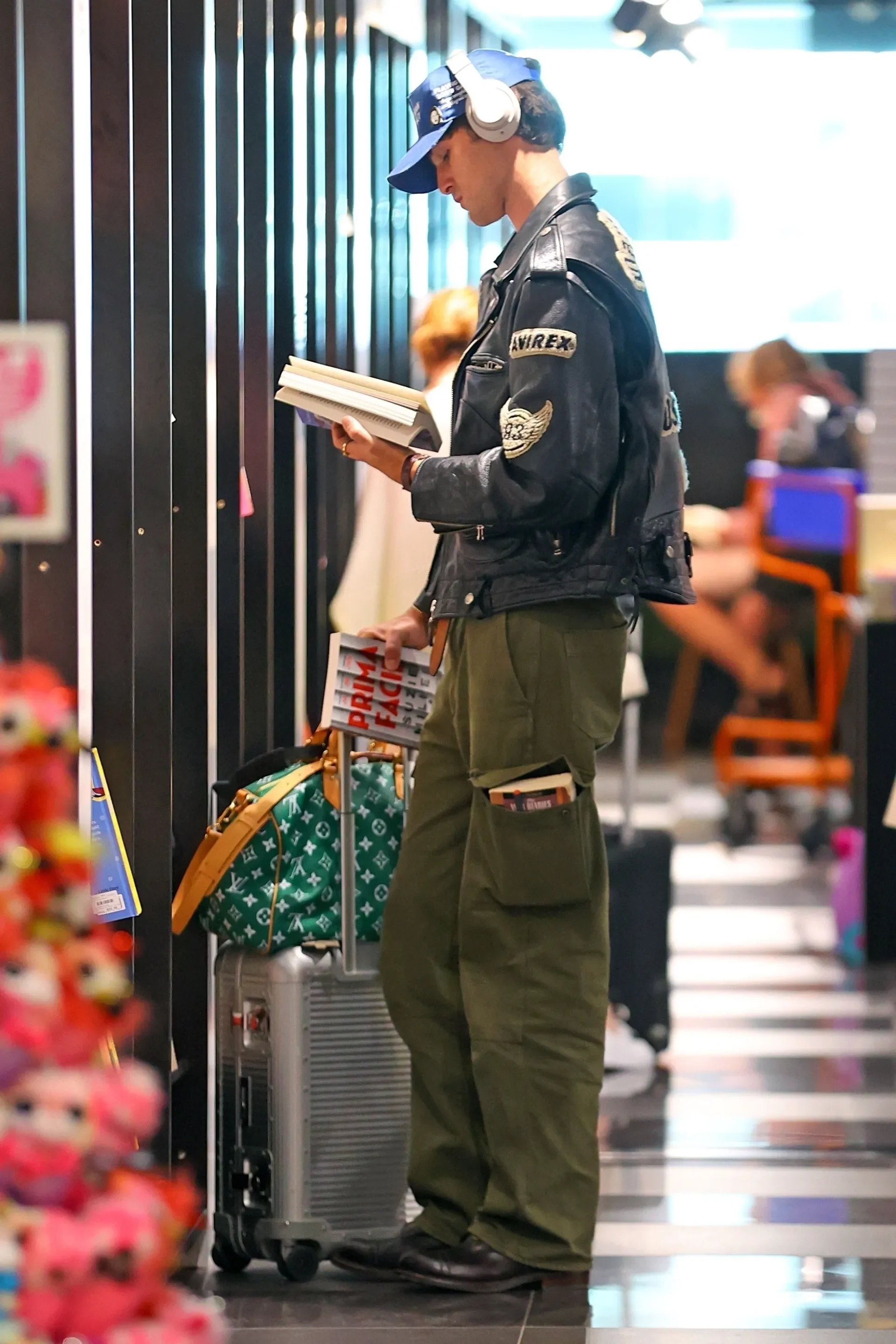Virtue Signaling, Performative Males, and the Exiled Self: Consumerism’s Chokehold on GenZ
It is okay to want to fit in, it’s how we have evolved.
Virtue Signaling, Performative Males, and the Exiled Self: Consumerism’s Chokehold on GenZ
2025: The year of discerning microtrend followers and the “chronically online” from engaged critical thinkers of the world. The internet is a strange place and inspires concerns for generations to come; from parasocial relationships to the seeming erasure of an awkward preteen phase, social media’s mastermind-like algorithm ultimately operates in such ways to drive consumerism and convince us that who we are and what we have is not enough. Never enough. There is always some aesthetic to sought after (#gorpcore) or some niche to have more dialed, and lately, this has been portrayed as a lack of originality—with especial hate directed toward “performative males.”
With the concept of performative males floating around the internet, an era of satire and meta-cognition in regard to trends is unfolding. Perhaps this gives too much credit to the algorithmic machine, but I find the “performative male” final-boss competitions going on to be rather entertaining from a socio-anthropological perspective.
Somehow it has become a trend to avoid trends at all cost; how ironic, how terribly human.
When I become consumed by the rathole of the internet (most likely doomscrolling on TikTok), I feel drained of originality. Post scroll-sesh, I am laced with dysregulation and subjected to a massive dopamine crash—normally convincing me I am not enough or eliciting the feels. Lately, I’ve forced myself into hyper-creation/productivity mode, as if creating will cancel out the consumption. I don’t know if that’s how it works (some days it’s like I’m betting on luck with my mental health), but I realize creating should not be a form of punishment for scrolling. Creating is a sacred privilege.
All this to say, I notice an obvious correlation between this dreadfully honest rhetoric that the world is lacking originality and how much time we spend on our phones. At some point between high school and applying to graduate programs, the fear of originality shifted into the fear of unoriginality.
Jacob Elordi reading in Sydney Airport, Courtesy of BGAU/Backgrid
Is this widespread?
Is virtue/status signaling and performative action all a desperate attempt to connect? To fit in? To distract ourselves from the impending fear of ourselves? It’s hilarious how far our self-consciousness will go to cling onto “survival” mechanisms… is buying dupe Miu Miu Bayonetta glasses when you have 20/20 vision really going to keep you alive? If at the core of virtue signaling is fear, I feel pity. How loathsome it is to buy an $8 matcha that’s most likely not even ceremonial grade for the all-seeing eye of approval.
Despite our efforts, I’m not sure there’s any way out of this trap.
Sure, maybe we’ve hit an all-time extreme of capitalistic-driven virtue signaling—i.e. expensive (& watery) matcha, Labubus, and Margiela tabis. You are not unhappy because you don’t have wired headphones to wear on the metro (the new performative white male staple); you’re unhappy because you’ve subjected yourself to a life of ingratitude. Consumerism feeds off of insecurities, consistently poaching our vulnerability for capitalistic gain. You have lost yourself in attempting to be palatable. At some point along the way, the authentic self became exiled—cast astray to prioritize an attachment to meaningless material. A fallacy predicated on the hope that you might be able to acquire (purchase) your worth.
It is all a trap your mind has convinced you is necessary to be loved because attention on the internet has morphed into our lifeline. In the end, there is no escaping yourself. No filling the sinking black hole of existentialism we all aimlessly attempt to distract ourselves from: wherever you go, there you are. We operate in such ways that the authentic self is exiled, cast astray to prioritize an attachment to being accepted. Consumerism feeds off our human nature; it is an empty promise to provide, preying on insecurities…and it works!
Gisele Bündchen in The Devil Wears Prada, Courtesy of Everett Collection/Alamy Stock Photo
Courtesy of Deborah Iona Photography, British Fashion Council
How often are our decisions made from within?
Virtue signaling has taken over, it’s in the bookstore, fashion, music we listen to. Am I alone in pretending to have liked rap to fit in during high school? Calling out performative males is hilarious–there are many angles to take here, and I’m not necessarily objecting to it. However, I personally give them an A for effort. I commend them for noticing and following trends so well they’re half-convincing. I don’t blame them for pretending, they should experiment. We should try— because honestly, inauthenticity is reparable, but effort is sexy. Maybe you’ll pretend to like Clairo so well, you’ll realize her music is actually good.
Do we need to condemn the performative parts we all have? They are adaptive, they want to be loved. It is in our nature to want love. Sure, whatever is going on externally can be deceptive, but haven’t we learned by now not to judge a book by its cover? I think there’s nothing less appealing than someone being judgmental of others trying. You will never know whether or not someone is being genuine either way. Become mindful of your judgment. Be curious about whether or not it serves you.
Ask yourself: Does your critical analysis of others contribute to a greater good? With performative behavior under a cultural spectacle, I’ve realized my own self-directed scrutiny for wanting to fit in. How, under the demise of consumerism, the illusion of choice corrupts my self-compassion. How quickly I jump to pretending (and performing) to be liked, to earn approval, to avoid being too much.
So here is an honest reflection on what I’ve learned as a twenty-something vowing to live in authenticity because my ego has nearly exhausted me: You become less cool when your ego enters the conversation. It is okay to want to fit in, it’s how we have evolved (#Darwinism).
Prioritize discernment: do you like Labubus? Or do you like people who like Labubus? (I learned this through collecting Sonny Angels. Turns out I actually have a weird love for naked babies with wings.)
A vintage leather boot is a leather boot; Frye label or not. Vinted is crawling in real leather for a fraction of the price of Frye. Don’t waste a paycheck rationalizing an overpriced vintage shoe for brand recognition. My Mom tried to teach me this at a very young age when I thought I wanted an Abercrombie jacket when what I really wanted was to fit in.
Jane Birkin, Courtesy of Gwendoline LeGoff/Panoramic
Things trend for a reason.
Without religious effort, you won’t fully rid yourself of the desire to be seen. You will fall prey to microtrends, it’s within capitalism’s design. Sometimes following trends is how you distinguish your own style/taste/voice. It is all an experiment, after all. Lead with compassion. If you buy into a trend, refer to above and apply what you learn next time you’re in the checkout line feeling fidgety about spending money. If you find yourself judging others for their performative behavior, ask yourself what that gets you.
So do I think it’s dangerous that the internet is inspiring even more self-consciousness in people—particularly performative males?
Sure.
But I also find it ironic that there’s a trend calling people out on trends. After all, all the world's a stage, and all the men and women are merely players.




